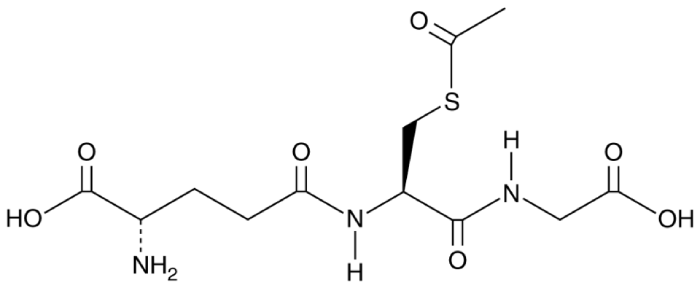FDA Accepts NDA Submission for Innovative Bumetanide Therapy
Corstasis Therapeutics Inc., a biopharmaceutical company specializing in advanced treatments for fluid overload, has announced that the U.S. Food and Drug Administration (FDA) has officially accepted its New Drug Application (NDA) for Bumetanide Nasal Spray (RSQ-777). The regulatory agency has scheduled a target review deadline under the Prescription Drug User Fee Act (PDUFA) for September 14, 2025.
This FDA review marks a critical step in the potential approval of RSQ-777, confirming that the submission is sufficiently complete for an in-depth regulatory evaluation. Corstasis is positioning the novel nasal formulation of bumetanide as a convenient, non-invasive outpatient therapy aimed at managing edema related to congestive heart failure, liver disease, and kidney dysfunction.
“We are thrilled to see the FDA recognize the potential of Bumetanide Nasal Spray,” stated Benjamin Esque, CEO of Corstasis Therapeutics Inc. “Our goal is to offer a simple, user-friendly solution for patients struggling with fluid retention in outpatient settings.”
Dr. Brian Kolski, Chief Medical Officer at Corstasis, emphasized the broader impact of RSQ-777. “By reducing reliance on hospital-based treatment, we aim to alleviate healthcare system burdens, lower costs, and enhance patient quality of life.”
If approved, this nasal spray could introduce a novel approach to diuretic therapy, potentially expanding accessibility and improving adherence for patients requiring long-term management of fluid overload conditions.
Commentary by SuppBase Columnist Alice Winters
Corstasis Therapeutics’ push to revolutionize diuretic administration with a nasal spray formulation of bumetanide is an intriguing development in the field of fluid management. While the FDA’s acceptance of an NDA is merely an initial regulatory step, it signals that the submission meets the threshold for a full review—an important validation for the company. However, whether RSQ-777 will translate into a clinically meaningful improvement for patients remains an open question.

1. Is a Nasal Spray the Game Changer It’s Marketed to Be?
The main selling point of this formulation is convenience: a nasal spray theoretically offers a fast, easy-to-administer alternative to traditional oral or intravenous diuretics. But is this truly an unmet need in the patient population? Oral bumetanide is already widely used, effective, and relatively simple to administer. IV bumetanide, while requiring clinical supervision, is reserved for more severe cases. Corstasis will need to convincingly demonstrate that a nasal route provides superior or at least comparable efficacy while solving a real-world adherence problem.
2. Pharmacokinetics and Bioavailability Concerns
One of the biggest questions surrounding RSQ-777 is how well bumetanide is absorbed via the nasal mucosa compared to oral or IV routes. Bumetanide is a potent loop diuretic, and its pharmacokinetics—absorption rate, bioavailability, peak plasma levels—are crucial to its effectiveness. Corstasis must present robust data showing that the nasal formulation provides predictable and sufficient systemic exposure without compromising diuretic potency.
3. Safety and Side Effect Profile
Bumetanide, like all loop diuretics, carries risks such as electrolyte imbalances, dehydration, and nephrotoxicity. A nasal administration route introduces additional variables—potential mucosal irritation, altered absorption dynamics, and the risk of under- or overdosing. Clinical trials must clarify whether RSQ-777 maintains a similar safety profile to existing formulations or if nasal administration poses unique challenges.
4. Market Positioning and Cost Considerations
A key concern for any new drug formulation is its place in the market. Corstasis claims RSQ-777 could reduce hospitalizations and associated costs by enabling more outpatient care. While this is an attractive proposition, it depends on pricing, insurance coverage, and whether prescribers see nasal administration as a meaningful advantage. If the nasal spray is significantly more expensive than oral generics without a clear clinical benefit, adoption could be slow.
5. Regulatory Pathway and Commercial Viability
The FDA’s acceptance of the NDA is only the beginning. The agency’s review will scrutinize the efficacy and safety data in comparison to existing bumetanide therapies. Even if approved, Corstasis must navigate the challenges of commercialization, physician adoption, and patient acceptance. A novel route of administration alone does not guarantee success—compelling clinical and economic advantages must be demonstrated.
Final Verdict: Promising, But Questions Remain
Bumetanide Nasal Spray (RSQ-777) is an interesting innovation in diuretic therapy, but its ultimate success hinges on robust clinical evidence, a clear market advantage, and regulatory approval. Corstasis Therapeutics has positioned this product as a potential breakthrough, but whether it truly fills an unmet need or merely adds another option to an already well-served market remains to be seen. The coming year will be crucial in determining whether RSQ-777 is a genuine advancement or a niche alternative with limited real-world impact.



